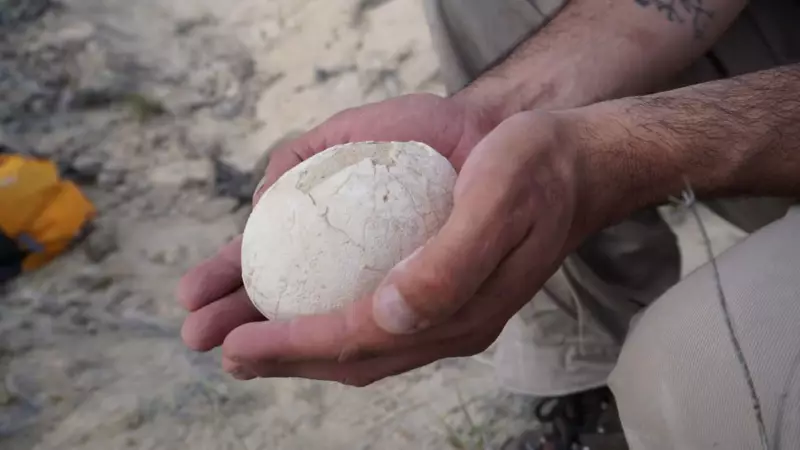
In a groundbreaking discovery that has sent ripples through the scientific community, researchers in Argentina have unearthed a perfectly preserved dinosaur egg dating back an astonishing 70 million years. The remarkable fossil was discovered in the rugged landscapes of Patagonia, a region renowned for its rich paleontological treasures.
The egg, belonging to the Late Cretaceous period, represents one of the most pristine prehistoric specimens ever found. What makes this discovery particularly extraordinary is the exceptional preservation state of the egg, allowing scientists unprecedented access to study the embryonic development of dinosaurs that roamed the Earth millions of years before human existence.
A Window into the Prehistoric World
Patagonia has long been a goldmine for paleontologists, but this recent find stands out for its remarkable condition. The egg's shell maintains much of its original structure, providing valuable clues about the reproductive biology of these ancient creatures. Researchers believe this single discovery could rewrite significant portions of what we know about dinosaur reproduction and embryonic development.
Scientific Significance and Future Research
The research team, comprising scientists from multiple Argentine institutions, expressed excitement about the potential revelations this discovery holds. "Finding an egg in this condition is like discovering a time capsule from the age of dinosaurs," remarked one lead paleontologist involved in the excavation.
Advanced imaging techniques and laboratory analysis are now underway to extract maximum information from the specimen without damaging its delicate structure. Scientists hope to determine the exact species of dinosaur, understand the environmental conditions that led to such exceptional preservation, and gain insights into the evolutionary relationships between prehistoric and modern species.
This discovery adds another significant chapter to Patagonia's status as one of the world's most important regions for understanding prehistoric life and the final days of the dinosaurs before their mass extinction.






